Anatomy of an NBA champion: Which teams fit the profile?
What does a champion look like?
Anyone familiar with the pantheon of NBA champions knows certain teams have dominated - only 14 franchises have won the last 44 titles. But what do champions have in common? Is there a statistical profile we can use to learn about this year's playoff competitors?
We're looking for statistical similarities among championship teams over the last 19 seasons - 2004-05 is when the NBA expanded to its current 30-team format. That also coincides with the league's elimination of hand-checking, is recent enough to account for the 3-point and analytics revolutions, and covers the period after which every playoff series became best-of-7 (starting in 2003).
Let's dig into the numbers.
Win profile
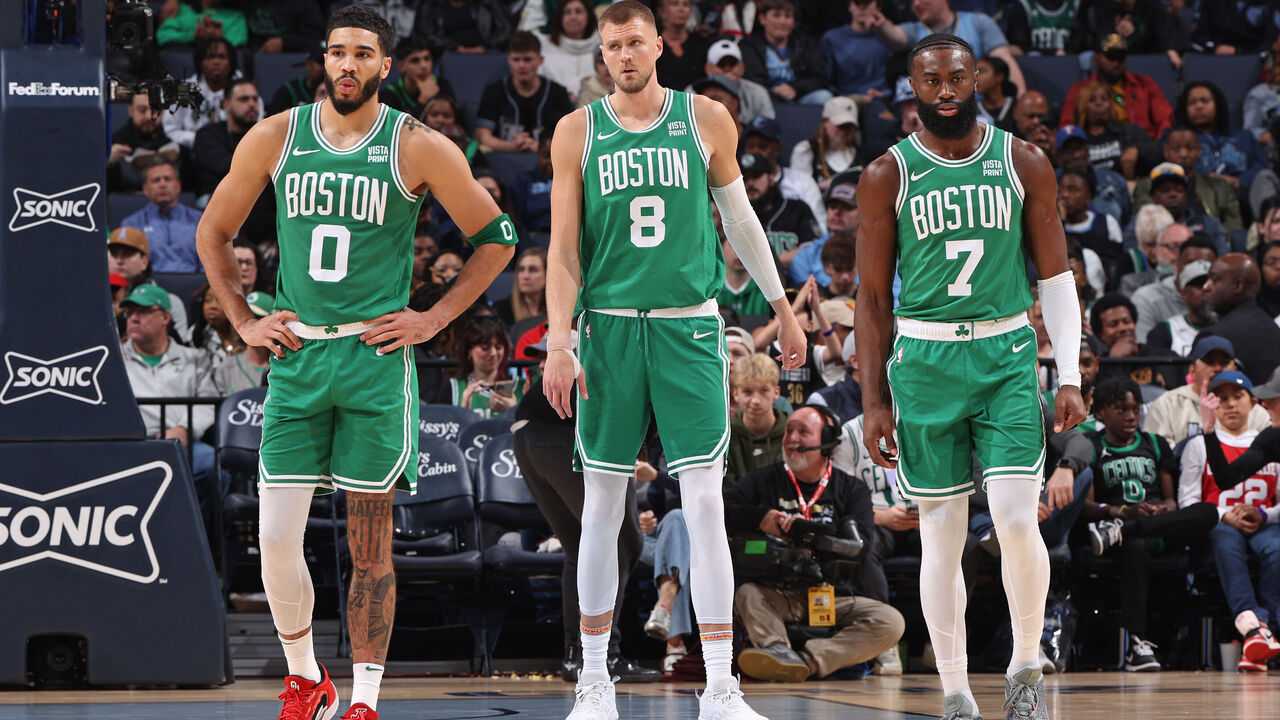
Modern champions have a minimum regular-season win percentage of .634 - the equivalent of 52 wins in 82 games - and ranked in the top seven overall.
That might even be a bit conservative since the winning percentage outlier, the 2005-06 Heat, produced at a 55-win pace (41-20) after Pat Riley took over coaching duties from Stan Van Gundy. Plus, they were on a 58-win pace (42-17) with Shaquille O'Neal in the lineup after the big man missed 18 of 20 games to start the campaign. The 2021 Bucks, meanwhile, used the regular season as a testing ground to prepare for the playoffs and were always better than their seventh-place finish overall.
An NBA champion needs to be inside the top eight in point differential, and even that might be generous. Eighteen of the last 19 champions finished with a top-six scoring margin.
Every modern champion except the 2006 Heat posted a winning record against winning teams, and the lone champion in our exercise to post a losing record on the road - last year's Nuggets - still nabbed 19 wins away from home. Meanwhile, each of the last 19 title teams dominated at home, winning at least 70.6% of its home games during the regular season.
Taking all this data into account, which teams compiled championship win profiles in 2023-24?
Teams that fit the bill: Celtics, Thunder, Nuggets, Timberwolves
Potential outliers: Clippers, Knicks, Mavericks, 76ers
The Clippers were one win shy of the minimum win percentage needed to qualify, but they did still finish with a top-seven record and checked all the other boxes of a championship win profile.
New York and Dallas rounded out the league's top seven this season. Both dominated at home and won on the road, and the revamped versions of their teams would've met the other championship-level cutoffs. The Knicks already met the point-differential benchmark for the season, and New York posted a winning record against winning teams after acquiring OG Anunoby. Meanwhile, the post-deadline Mavs owned the league's third-best record, sixth-best point differential, and beat winning teams more often than not.
Finally, Philadelphia played at a 65-win pace (going 31-8) with Joel Embiid in the lineup, which included an 11-7 mark against winning teams, a 12-3 road record, and a whopping average point differential of plus-10.3.
Offense
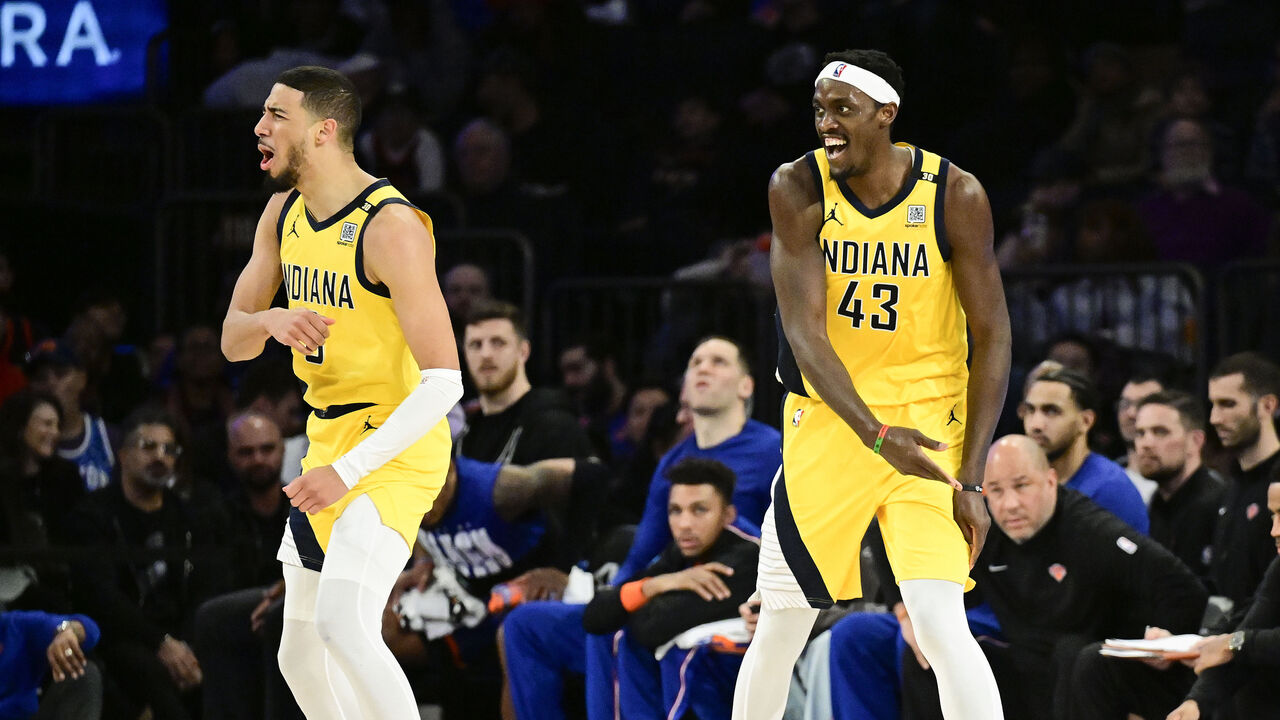
The outliers involved on the offensive end make this data the noisiest of any category.
Sixteen of the last 19 champions finished with a top-nine offensive rating, a top-six effective field-goal percentage, and a top-eight half-court offense. Dig deeper and you'll find that 11 of the last 12 champions finished in the top nine in 3-point shooting (with 3-point accuracy seemingly more indicative than 3-point attempt rate), as NBA offenses have emphasized the deep ball.
When all 19 title-winners from this time frame are considered, a team qualifies as an offensively capable contender if it posts a top-16 mark in offensive rating and half-court efficiency, a top-15 effective field-goal percentage, and a top-23 3-point percentage.
Those very modest cutoffs don't really discriminate. Blame the Lakers' last two championship teams (2010 and 2020) and the 2022 Warriors, whose mediocre regular-season numbers never told the whole story (like Klay Thompson playing only 32 regular-season games).
Teams that fit the bill: Celtics*, Thunder*, Pacers*, Nuggets, Clippers, Mavericks, Bucks, Suns, Pelicans, Lakers, Kings. (The asterisk denotes the three teams that would've qualified using the more exclusive cutoffs.)
Potential outliers: Pelicans
Even if New Orleans survives Friday's play-in game against Sacramento, no one expects the Pelicans to boast a championship-level offense with Zion Williamson sidelined again.
Defense
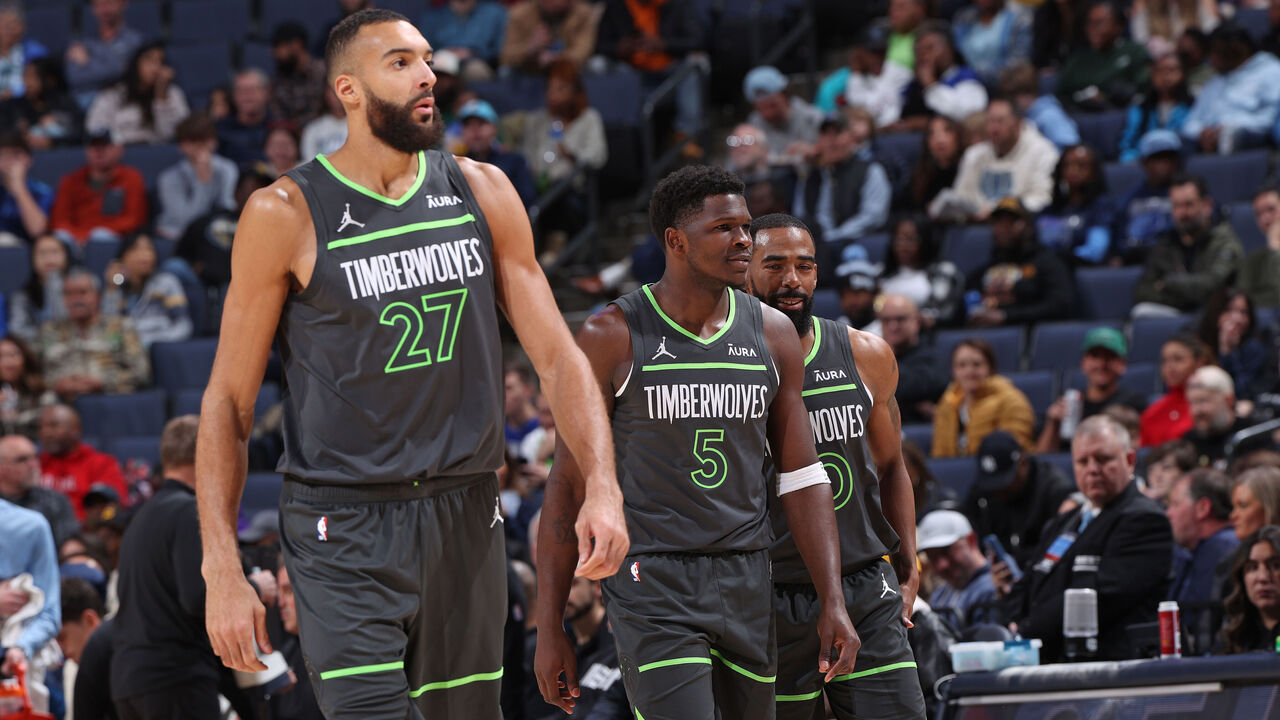
Though the modern era has been defined by the proliferation of 3-pointers, the analytics revolution, and the resulting scoring boom, defensive performance remains more predictive of postseason success (though the defending champion Nuggets might like a word).
Every champion in our sample prior to last year's Nuggets finished in the top 11 defensively, and 15 of the last 19 champions finished in the top 10 in limiting opponents' effective field-goal percentage.
Still, even if the 2023 Nuggets' pedestrian defense - which ratcheted up in the playoffs - is a sign of the times, Denver still finished the 2022-23 campaign slightly stingier than the league-average D. In fact, only two teams in NBA history have won a title with a below-average defense: the 2001 Lakers (1.8 points per 100 possessions worse than league average) and the 1956 Philadelphia Warriors (0.5 points per 100 possessions worse than average).
Teams that fit the bill: Celtics*, Thunder*, Nuggets*, Timberwolves*, Pelicans*, Cavaliers*, 76ers*, Knicks, Suns, Magic, Heat. (The asterisk denotes seven teams that would've still qualified using the pre-Nuggets cutoffs.)
Potential outliers: Mavericks, Bucks
Milwaukee's improved defense under Doc Rivers would've barely qualified, but Dallas' post-deadline D passed with flying colors after the additions of big man Daniel Gafford and forward P.J. Washington in February. With them, the Mavs boasted the league's eighth-best defense and held opponents to the fifth-lowest effective field-goal percentage. For an explosive offensive team featuring Luka Doncic and Kyrie Irving, that'll play.
By the way, if you're looking for the Clippers in this category, their defensive rating was 0.1 points per 100 possessions worse than league average. Could they become the third below-average defense in 78 years to claim the Larry O'Brien Trophy?
Star talent
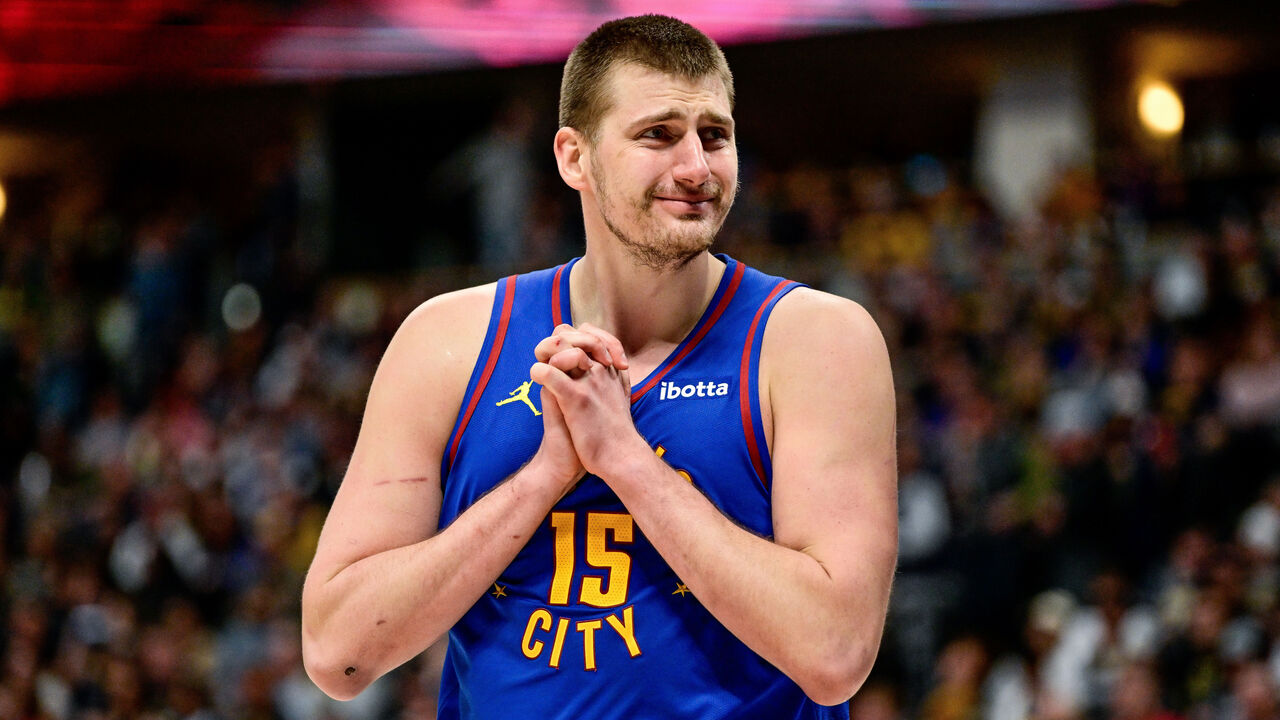
The postseason - and especially the Finals - is about transcendent talent. Depth can carry you to the playoffs, and an All-Star can drag you into the second or third round, but you need a generational superstar if you want to compete in June. There's a reason 38 of the last 44 Finals have featured at least one of LeBron James, Tim Duncan, Kobe Bryant, Shaq, Michael Jordan, Magic Johnson, or Larry Bird. Add names like Nikola Jokic, Giannis Antetokounmpo, Stephen Curry, Kevin Durant, Kawhi Leonard, Hakeem Olajuwon, and Isiah Thomas, and you've covered all 44.
There's no way to quantify with 100% accuracy where players rank individually. But one tool, made famous by Bleacher Report's Andy Bailey, determines how stars stack up based on their average rank across numerous catch-all stats. According to that data, each of the last 19 champions has employed a player who ranked in the top 15 during the regular season.
When you consider how flawless the 2014 Spurs were, and how much better than No. 15 Leonard was in 2019 (when missed regular-season games affected his place in the rankings), you realize that a top-10 player - arguably top five - is probably necessary.
You'll also notice every champion featured at least one All-Star, with 14 of the last 19 employing more than one.
All 19 champions also featured at least one All-NBA selection (10 had multiple players on the year-end list), and 16 of the last 19 champs boasted at least one All-Defensive team selection. But those awards won't be handed out for weeks, so we can't use them to filter here.
Teams that fit the bill: Nuggets (Jokic), Mavericks (Doncic), Bucks (Antetokounmpo), Thunder (Shai Gilgeous-Alexander), Lakers (James, Anthony Davis), Knicks (Jalen Brunson), Celtics (Jayson Tatum), Clippers (Leonard), Pacers (Tyrese Haliburton), 76ers (Embiid), Kings (Domantas Sabonis), Cavaliers (Donovan Mitchell), Suns (Durant)
Potential outliers: Timberwolves
Anthony Edwards finished tied for 20th in Bailey's catch-all metric, but no stat is perfect, and anyone who's watched Ant Man's development can't deny he has that undeniable it factor all champions possess. A prolific three-level scorer, Edwards has the makeup of a championship-level shot-creator. With Rudy Gobert anchoring the league's best defense behind him and Karl-Anthony Towns slotting in as a hyperefficient secondary scorer, I don't believe Minnesota lacks top-tier talent.
Who's left standing?
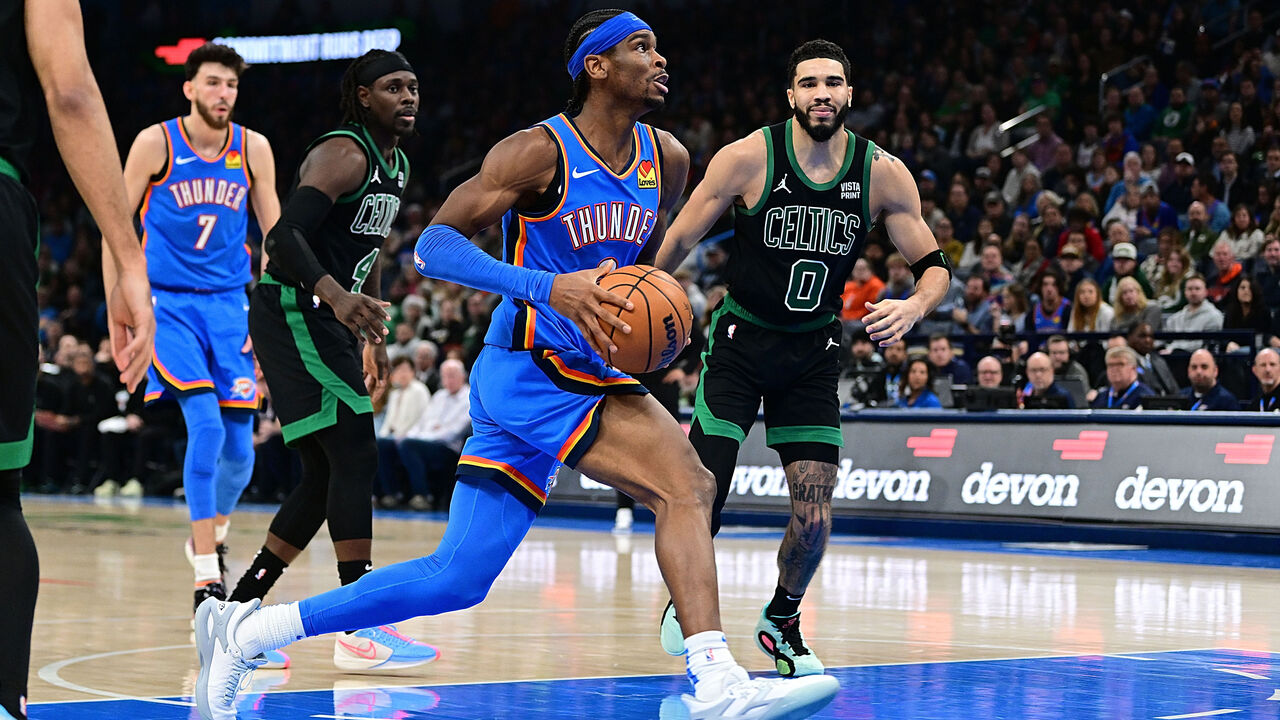
If modern championship history is any indication, one of Boston, Denver, or Oklahoma City will be crowned when the 2024 playoffs conclude.
The Celtics wrapped up arguably the most dominant regular season in the franchise's storied history. Boston's 64 wins left it seven games clear atop the overall standings, with the fifth-best point differential in NBA history. The gap between the Celtics' league-leading net rating of plus-11.7 points per 100 possessions and OKC's second-ranked mark of plus-7.3 was the fourth-largest gap (4.4 points) ever between the league's top two teams. In addition, Boston became the 10th team in history to finish with a top-two rating on both sides of the ball.
Having said that, you don't have to look very far to find a dominant Celtics squad that fell flat in the playoffs. Of the four previous teams to finish in the top two in both offense and defense over the last 47 years, the only one that didn't win the championship was last year's Celtics.
The Thunder qualifying as a legitimate title contender is remarkable considering Oklahoma City boasts the NBA's youngest team weighted by minutes played. Gilgeous-Alexander, Jalen Williams, and Chet Holmgren are the league's most promising young trio since OKC had Durant, Russell Westbrook, and James Harden. Thunder fans hope this version of the team can win one more round than the previous trio did.
As for the Nuggets, the defending champs return to the postseason still boasting the league's best player in Jokic, and with a much better defense than the one they rode to a title a year ago. For what it's worth, Denver's won seven of nine playoff series when Jokic and Jamal Murray are both in the lineup.
Potential outliers: Timberwolves, Mavericks
The numbers say Minnesota's offense isn't up to championship snuff, but with Edwards and Towns leading a deep, well-coached team organized by Mike Conley at the point, it feels like there's enough here to complement their Gobert-led defense.
As for Dallas, the post-deadline version of the Mavs check all the boxes of a bona fide contender, much like last year's seventh-seeded Lakers did after retooling at the deadline and going on a run to the conference finals.
If Embiid was at full strength, Philadelphia's performance with the reigning MVP in the lineup would certainly make them a contender. But he didn't exactly look up to speed in the Sixers' play-in victory over Miami. The Clippers are also worth a note here, but with an inconsistent defense and uncertainty about Leonard's health again, it's hard to have faith in L.A.'s other team.
Happy to be here: Bulls, Magic
Chicago's the only team of the 18 remaining that doesn't check a single box in this exercise, which shouldn't surprise anyone. The ninth-seeded Bulls, who won 39 games before defeating the 36-win Hawks in the first round of the play-in tournament, finished seven games behind any of the postseason's other remaining squads.
Of the 14 teams that have already qualified for the playoffs, none checked as few boxes as Orlando, whose defense is the only thing up to championship standards. Still, don't sleep on the young Magic. That third-ranked defense can ruin a more experienced team's best-laid playoff plans. Orlando has more shot creation than its inefficient offense suggests, and its first-round opponent (Cleveland) is reeling. After ending a four-year playoff drought, don't be shocked if Orlando's in the second round for the first time in 14 years.
For what it's worth, I found clutch-time performance (on either end), free-throw attempt rate, and rebound rates weren't great indicators of a team's postseason fortunes.
Joseph Casciaro is theScore's senior content producer.